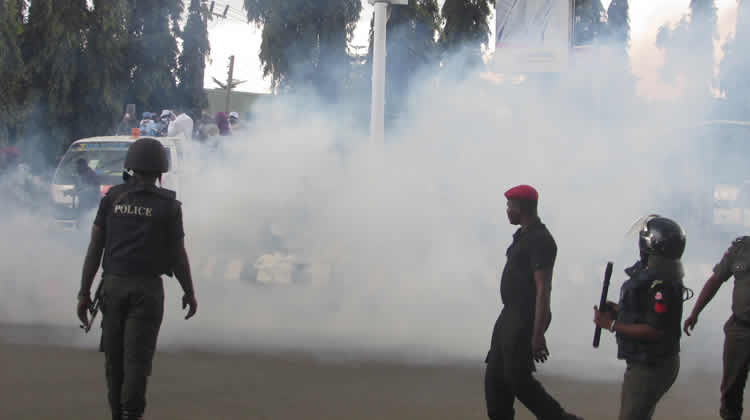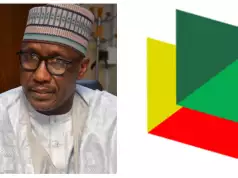Nigeria Police Force officers used tear gas on nonviolent protesters in the Maitama neighbourhood of Abuja on Monday as they took to the streets to call for immediate government action on the deteriorating economic situation, increased repression, and the purported abuse of the Cybercrime Act.
The protest, which was part of a nationwide demonstration organised by the Take-It-Back Movement in collaboration with several civil society organisations, coincided with the National Police Day celebrations held at Eagle Square.
As part of the security arrangements for the official event, authorities had placed a blockade around the Three Arms Zone, where top police officials were expected to attend the ceremony honouring the service of the Nigeria Police Force.
Protesters — including human rights activist and former presidential candidate Omoyele Sowore — carried placards with messages such as “Stop the Repression” and “Let Us Breathe,” aimed at drawing attention to what the organisers described as a growing wave of authoritarianism under the current administration.
Juwon Sanyaolu, the national coordinator of the Take-It-Back Movement, who led the mobilisation, outlined the key issues fuelling the protest. These included soaring inflation, nationwide insecurity, and what he described as a “state of emergency” in Rivers State.
Although the protest began peacefully, it descended into chaos when police operatives deployed tear gas canisters to disperse the crowd. Protesters were seen fleeing the area, with tensions running high.
As of press time, there were no confirmed reports of injuries or arrests.
Meanwhile, the National Assembly complex — one of the protesters’ intended destinations — remained largely deserted due to the ongoing legislative recess. Lawmakers are scheduled to resume on April 29.
Despite the disruption, protest leaders insisted that the demonstration was both necessary and timely, stressing the urgent need for government action to address rising economic hardship, insecurity, and perceived efforts to silence dissent.





![Late Chinyere Gladys Mbakwe Set For Burial Feb. 20 In Umuahia [SEE POSTER] Mrs. Chinyere Gladys Maduabuchi Mbakwe Set For Burial Feb. 20 In Umuahia [SEE POSTER]](https://abntv.com.ng/wp-content/uploads/2026/02/FB_IMG_1771516412563-300x194.jpg)




![Late Chinyere Gladys Mbakwe Set For Burial Feb. 20 In Umuahia [SEE POSTER] Mrs. Chinyere Gladys Maduabuchi Mbakwe Set For Burial Feb. 20 In Umuahia [SEE POSTER]](https://abntv.com.ng/wp-content/uploads/2026/02/FB_IMG_1771516412563-100x75.jpg)